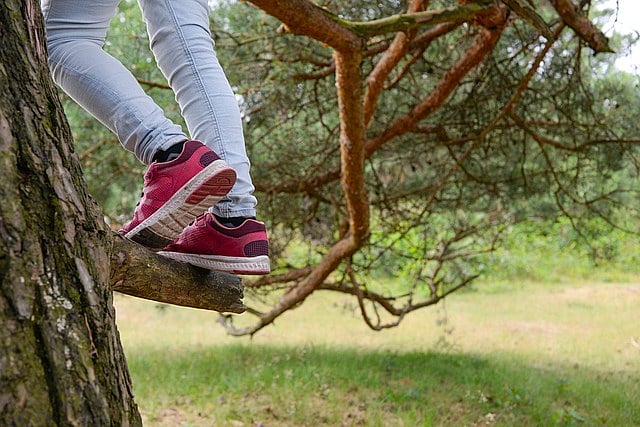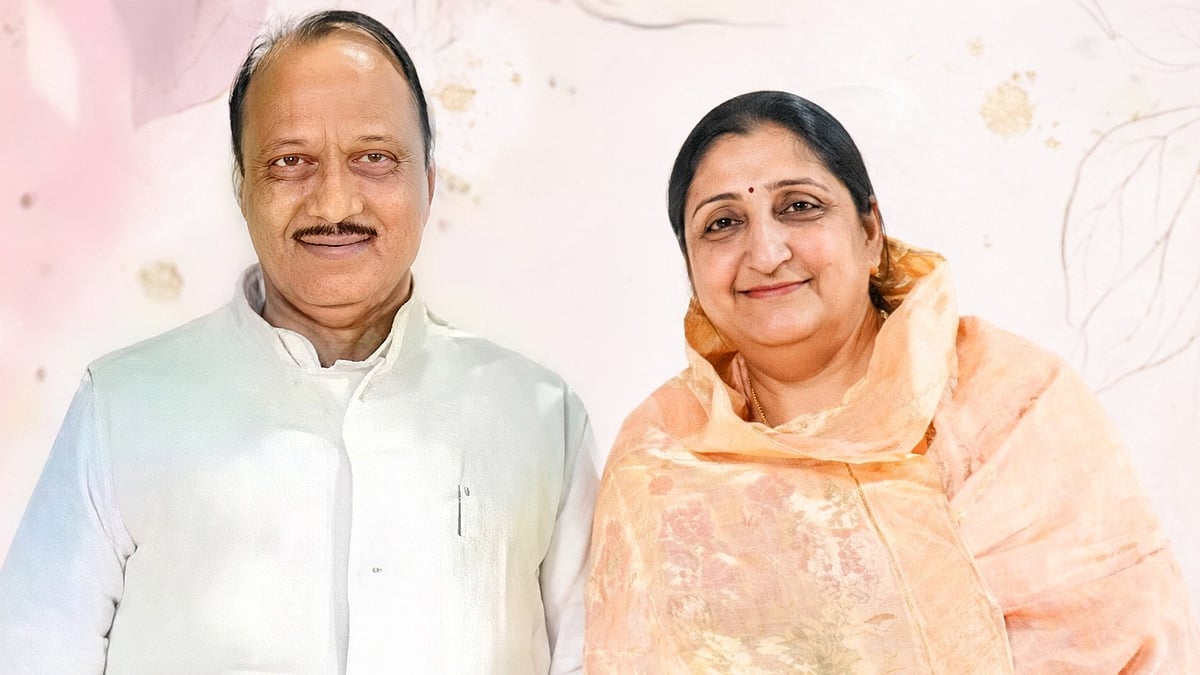During a nature walk last week, my five-year-old decided he wished to climb a tree. Its bark was smooth, there was little to hold on to. He had to find a way of hoisting his body up to a low branch. He clambered and slid, slid and clambered—until a girl, six years older, said, ‘Can I help you?’
‘Yes,’ my son replied. And she held his hand till he could negotiate bark and branch.
Just minutes earlier, I had made a similar offer. I can help you, I had said. But this wasn’t what my son desired. He didn’t want an adult—so much taller, full of swank the way grown-ups often are, with solutions and opinions and views—to tell him how.
Maybe what he sought right then was someone closer to where he was, who had just minutes or months or years prior struggled with the exact same tree, who had scraped her shins and chipped a nail while leaping up. Who had learnt the way we must, and the way adults want not to, by falling and falling still.
Or maybe he knew with childlike intuition that the young girl didn’t have answers. What she had was an awareness of littleness, of a heart that wished for more than the body could give.
My son found a spot on a branch by her side.
This isn’t the first time my son had sought out a much older child’s help. N, nearly 10, for all practical purposes was my son’s first friend. They had met over a game of chase, and my son, still wary of kids after his experiences on rough playgrounds, had chosen to watch uneasily from a distance. N had taken the initiative to spot him, to stop the game, to gently offer his hand. My son had clutched.
He clutched again, several months later, while attempting to climb a slide backwards. ‘Will you help me?’ he asked N. And N did.
As I watched him, high up on the slide, N by his side, I felt like I was witnessing the world as it was meant to be—a little boy gleaning skills, not from a grown-up a whole generation apart, but from someone in the ‘zone of proximal development’; who had only just passed through my son’s stage of existence; who knew of its challenges and fears and hesitations with a kind of raw immediacy.
Such mentoring—it has defined much of human civilization. It’s how kids were known to flourish—by finding succour and security and wisdom in their caregivers; by leaning into them; by depending on them—but by picking up the newest, the latest, the flashiest of skills from those slightly older; who had only just passed through their life phase.
Somewhere, somehow, this has been mislaid—this form of social structuring; these rites of passage, these secret codes, these tools that were meant to be passed down, from the old to the young, not in a swift downward torrent, but gently, rung by rung by rung by rung.
Today, what we’ve acquired instead is a structure that is flat, almost inert, where four-year-olds must mingle with other four-year-olds, and five-year-olds with those who aren’t much older. What is there to acquire in these interactions, what life skills, what insights? What is a co-voyager to offer—oh, what?—besides the exact same view of the world?
This is where so many of our schools appear to have faltered. With their inability to operate without strict age segregation, they have upended a form of social interaction that was once multivariate and layered, and replaced it with something toneless, tedious, so very sad. An alarmed four-year-old sharing a desk with another alarmed four-year-old.
And so, in this age-segregated new world we seem to have inherited, here is what our children stand to lose. Gentleness and concern and nurturance—stuff that must come naturally to those who look out for beings somewhat smaller. Startle and awe and that quivering goodness-me—the things that must be felt by those who are led by beings slightly older.
So, in this age-segregated new world we seem to have inherited, here is what our kids really stand to lose—the skills that are meant to make their adult associations spark alive—the asking and the giving, the grasping and the sharing. They stand to lose the dance of life itself—where each comes to take turns, following and leading, heaping love on and accepting care.
We have terms for the fallouts of an age-segregated universe—bullying and narcissism and oppositional defiance. But these, each of these, is no more than a cry; a call, almost hysterical, for variance and fluidity; a clamouring for touch, for talk, that isn’t defined by the birth year.
When my son clambered down the tree—the older girl still guiding, still holding—he looked almost triumphant. I don’t think it’s because he had conquered a tree—for the fact is that no one can conquer a tree. It’s because he carried in him a trick, a sleigh of hand, magic—
The kind he could keep. The kind he knew he’d pass on.
Dharini Bhaskar is the author of These, Our Bodies, Possessed by Light. She is working on her next novel and can be reached at dharini.b@gmail.com









